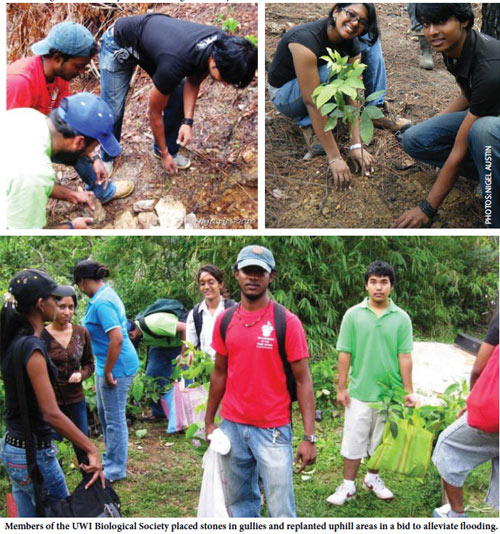 |
 |
 |
|
August 2010
|

The UWI recognizes the special responsibility of academic institutions to show leadership in the preservation of the environment. To this end, we formulated an Environmental Policy, approved in 2008 by the University’s Academic Board and Finance and General Purposes Committee, and executed by the Campus Environmental Committee, to assist the university in doing the right things with respect to the environment, and showing others how to do the right things. Among our current thrusts is sharply reducing the amount of solid waste that our students and staff send to the dump. The Environmental Committee’s ambition is nothing less than to set an example that will introduce a radical change in how our society views and manages solid waste. It is reasonable to expect that within a generation we will see a marked difference in this area of daily life. Working on the same premise, but with respect to flooding and deforestation, the UWI Biological Society has been looking at ways to slow down the rush of water during heavy rainfalls. Members have been putting stones into uphill gullies and planting water-tolerant plants in trenches to provide some barriers for the rushing waters. In June, they devoted themselves to reforestation projects, working on two hectares of land in Lopinot Village that had been ravaged by forest fires. Educational methods are an important strategy for getting environmentally friendly messages across, as demonstrated in a course on Tropical Forest Ecology Management, which deals with deforestation and its environmental implications, taught by Dr Michael Oatham, a lecturer in the Life Sciences Department. |

 A generation ago the central problem facing humanity was the threat of all-out nuclear war. The central problem in our time is the need to save our planet from irreversible environmental decay.
A generation ago the central problem facing humanity was the threat of all-out nuclear war. The central problem in our time is the need to save our planet from irreversible environmental decay.